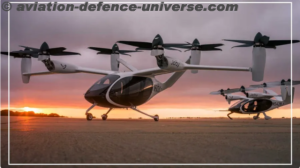São José dos Campos, Brazil. 23 December 2020. Embraer has released technical guidance to assist its customers to properly define the transportation characteristics and payload requirements for the COVID-19 vaccines, utilizing commercial aircraft. Due to the pandemic, operators are looking at the possibility of using Embraer aircraft to transport vaccines.
The document includes guidance for the EMB120 Brasilia, the ERJ 145, the E-Jets, and the E-Jets E2 families of commercial aircraft. The main goal is to support airlines with proper guidance as they prepare to transport vaccines around the world. Currently, there are more than 100 customers flying a fleet of almost 2,500 Embraer commercial aircraft in more than 80 countries.
The transport of COVID-19 vaccines requires temperatures as low as -70ºC, which are maintained using dry ice. An Embraer aircraft can transport over one hundred thousand vaccines, depending on the aircraft configuration and containers used. The guidance includes technical information, such as how operators can load and unload each aircraft.
“Since the pandemic began, Embraer’s main concern has always been the health of its employees and partners, as well as contributing to society to overcome the impacts of the crisis. This technical disposition allows us to guide our customers, supporting each airline using Embraer’s products to transport the vaccines that will benefit the entire world in the fight against the virus,” said Francisco Gomes Neto, Embraer’s President and CEO.
Regarding Embraer’s products, the Company has released a Service Bulletin that allows ERJ 145 operators to install high-efficiency particulate air (HEPA) filters, which are standard on all versions of the Embraer E-Jets and E-Jets E2 families of commercial aircraft. HEPA filters are extremely efficient, capturing 99.97% of airborne particles and other biological contaminants, such as bacteria, viruses, and fungi.
This technology is also available on Embraer Executive Jets, with the HEPA filter now standard on both the Praetor 500 and Praetor 600. Earlier this year, Embraer also approved the use of MicroShield360, a preventive coating system that, when applied to aircraft cabin surfaces, continuously inhibits the growth of microbes. The combination of these new features, with the existing cabin environment technologies, equates to a higher level of protection for passengers.
Among other initiatives to fight COVID-19 in Brazil, Embraer has worked in partnership with companies and research centers on technologies to increase the availability of equipment and solutions. The actions, developed jointly with Embraer‘s supply chain, included the manufacturing of parts for the ventilator and respirator industry, the replacement of imported components for ventilators, the development of high-efficiency filtration systems for transforming regular hospital beds into intensive care beds and studies for the development of simple, robust, and portable respirators aimed at rapid implementation and availability.

































































































































